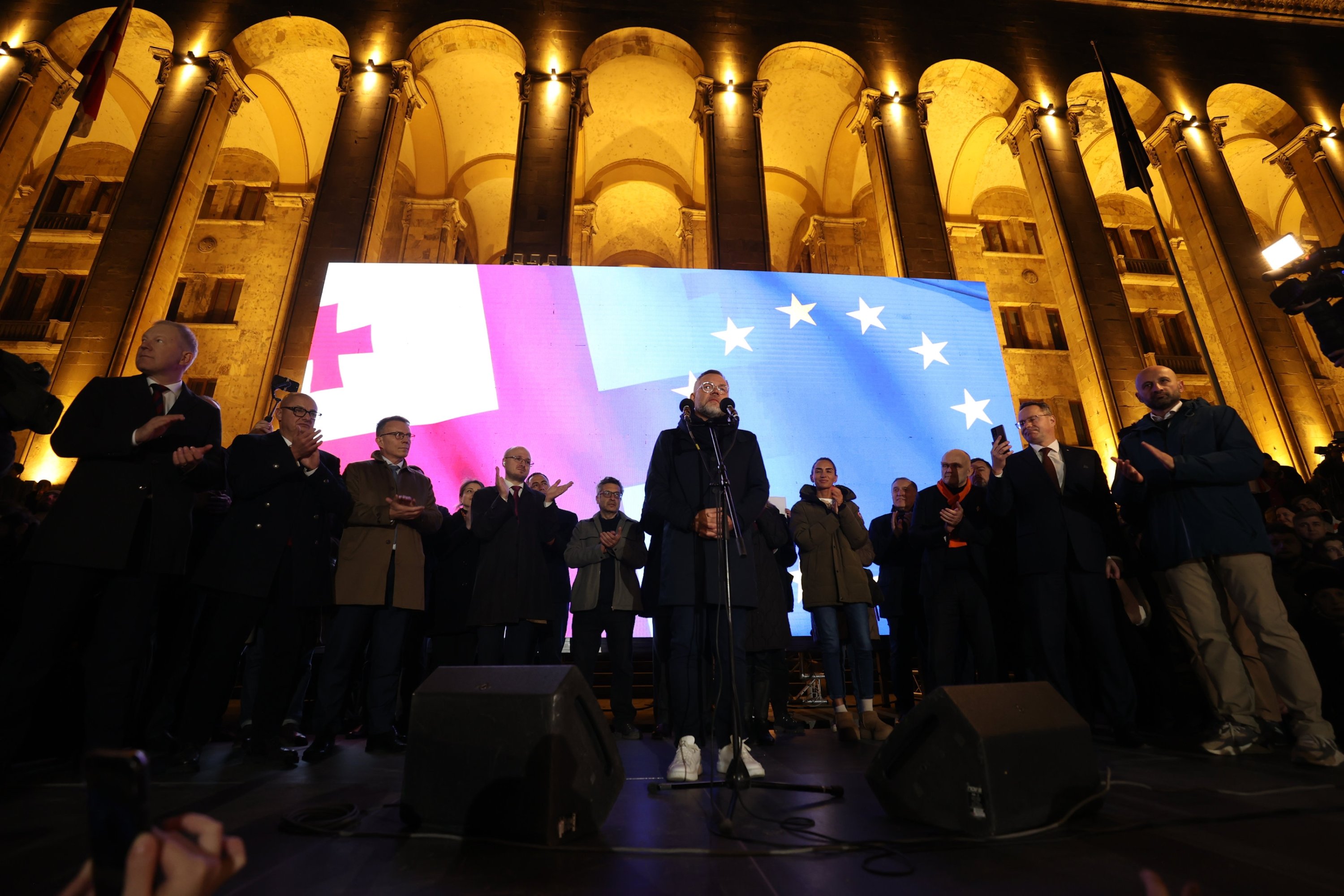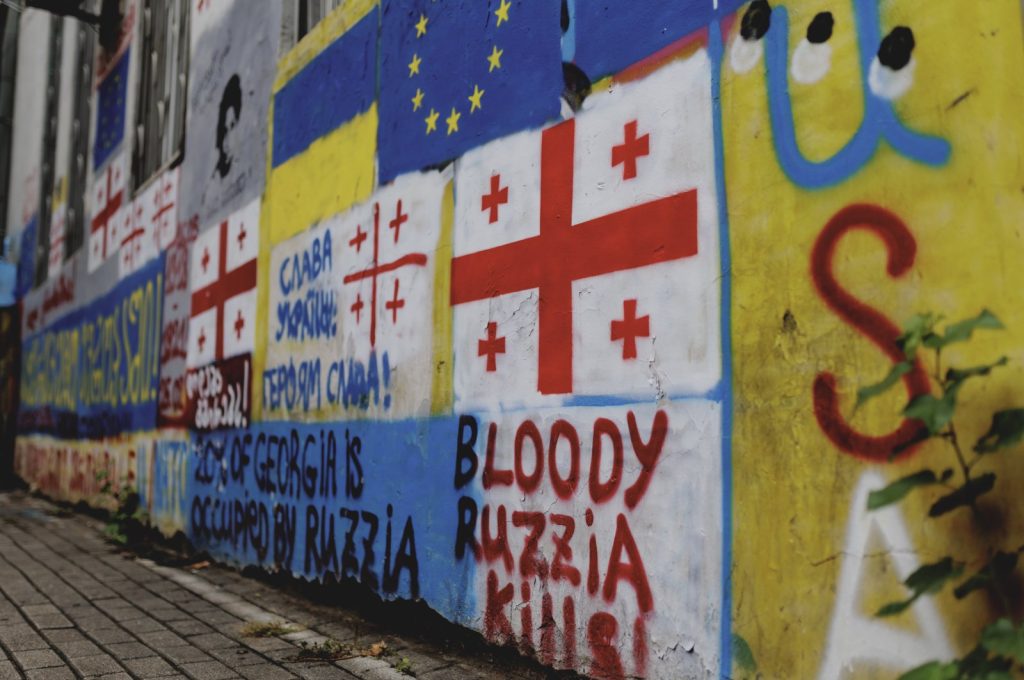Russia’s rivalry with the West in the Caucasus has a historical background beyond current political developments. It may appear to be a striking coincidence that the Caucasus has once again become the stage for the “Great Game” – the long-standing rivalry in international relations – with Russia as one of the key players. However, when Russia’s actions in the Caucasus are examined chronologically, it becomes clear that the notion of a simple coincidence gives way to the reality of a deeply entrenched rivalry between Russia and the West.
The battleground: Caucasus
The first signs of Russia’s rivalry with the West in the Caucasus, with its inherited identity from the USSR, can be traced back to its “struggle” to be a permanent member of the Minsk Group of the Organization for Security and Co-operation in Europe (OSCE) in 1994-1996. In other words, Moscow seems to have turned the Karabakh issue into an axis of rivalry in the Caucasus. However, the Russia-West rivalry in the region was not limited to this, and a large part of its work in this region was carried out in Georgia. Many exemplary developments in the following years have produced dozens of proofs that there is a rivalry rather than coincidences.
For example, in October 2001, during a visit to the U.S. by then-Georgian Eduard Shevardnadze, he stated, “Georgia is not the southern flank of Russia’s strategic space, but rather the northern flank of NATO strategic interests” – immediately after which a United Nations helicopter was shot down in Abkhazia and the Kodori Pass in the Kodori Valley in Abkhazia was bombed. These two developments, which were more than a coincidence, were highly associated with each other in the literature of the period. From these years onward, Georgia’s top officials regularly reaffirmed their desire to join the Western alliance and NATO, deepening Russia’s rivalry with the West.
The next link in the “chain of coincidences” in the Russian-Western rivalry in the Caucasus through Georgia was declaring Georgia’s membership possibility in the final declaration of NATO’s Bucharest summit held on April 2-4, 2008. This development alarmed Russia. About three months later, on July 15, 2008, in the revised “Foreign Policy Concept of the Russian Federation,” the official document defining the strategy of the state, Russia underlined this situation with the following statements: “Russia maintains its negative attitude toward NATO’s enlargement, in particular its plans to admit Ukraine and Georgia as members of the alliance and, in general, to bring NATO’s military infrastructure closer to Russia’s borders.” It was more than coincidence that Moscow responded to NATO’s “final declaration” with an “initial declaration” that paved the way for the Georgian war.
On July 24, 2008, the president of Georgia attended the groundbreaking ceremony of the Baku-Tbilisi-Kars (BTK) railway project in Kars, Türkiye, where he emphasized his country’s growing integration with the West. Approximately two weeks after this development, on Aug. 8, 2008, Russia entered Georgia with its troops, further escalating its rivalry with the West. Immediately after the five-day war, on Aug. 14, 2008, the unanimous decision of the Georgian Parliament to withdraw from the Commonwealth of Independent States (CIS) was one of the important legal arrangements documenting the rivalry.
Oligarchs in Georgian politics
In the second decade of the 21st century, changing conditions have resulted in Russia revising the instruments of competition in the Caucasus. The rules of the game in the rivalry in the Caucasus, which has always been associated with the metaphor of the “Great Game,” have started to change. Under the shadow of the concept of “sovereign democracy” during the Putin era, the oligarchs’ involvement in Russian politics has increased, and sometimes this method has spread beyond Moscow. A reflection of this situation was the appearance of Bidzina Ivanishvili, a pro-Russian billionaire, in Georgian politics in 2012. This oligarch, who made his fortune in the metal and banking business in Russia and is the richest man in Georgia, founded his party, Georgian Dream (GD), in 2012 and came to power with the elections held in the same year.
With Ivanishvili’s victory in the 2012 elections in Georgia, another chronic problem has been the constant allegations of Russian interference in the elections. Ivanishvili, who came to power in the 2012 elections in a race with pro-Western parties, adopted the principle of not criticizing Putin and argued that there should be no clashes with Russia. In 2012, Ivanishvili and the GD, who owed his success in the elections to this attitude, succeeded in carrying his three terms in power, both alone and in coalition, to a fourth term. The power of Ivanishvili, who has a wealth of Russian origin and a pro-Russian attitude, is not a product of coincidence based on the judgment in the introductory sentence. This development, which is evaluated within the scope of Russia-West rivalry, is still on the agenda today.

The recent elections
On Oct. 26, 2024, another election was held in Georgia. According to the unofficial election results and statements by the ruling GD, Ivanishvili’s party was reelected with 54% of the vote. In the elections, four main pro-Western opposition parties received 37% of the votes. Their number one agenda was again the reliability of the results and allegations of violations in the voting process.
The fact that the election results in Georgia were perceived as a defeat by Western countries supporting the opposition is a natural extension of the Russia-West rivalry in the Caucasus. For this reason, many European countries have remained silent about commenting on the election results. On the other hand, the U.S. Department of State emphasized the violations of the electoral process and stated, “We encourage Georgia’s political leaders to respect the rule of law, repeal legislation that undermines fundamental freedoms, and address deficiencies in the electoral process together.” In fact, the emphasis on “legislation that undermines fundamental freedoms” is more than a coincidence because it points to the “Law on Transparency of Foreign Influence” introduced by the pro-Russian GD in 2012. This practice stipulates that media organizations and nongovernmental organizations (NGOs) receiving at least 20% of their funding abroad must register as “foreign agents.”
Another feature of the last elections held in October 2024 that reflects the Russia-West rivalry was that Moscow responded to the U.S. allegations of Russia’s interference in the elections in Georgia with the same tone and arguments. On Nov. 5, 2024, Russian Foreign Minister Sergei Lavrov denied the allegations of Russia’s interference in the Georgian elections and stated that the West was interfering in Georgia’s internal affairs: “Washington continues to actively use the myth of Russia’s interference in any elections, whether ‘at home’ or in third countries. If the voting results show that the U.S. does not like the win somewhere, Russia is immediately blamed for the ‘wrong’ choice of the voters.”
At this point, the Russia-West rivalry in the Caucasus, one dimension of which is centered on Georgia, is still in place. Given the counter-accusations of the two rival actors, it cannot be objectively understood whether the West or Russia intervened in the Tbilisi elections. However, the fact that can be commented on is that the above developments, which chronologically respond to each other, are, in essence, more than a series of coincidences. Just like Ian Fleming, the creator of the James Bond character, said: “Once is happenstance. Twice is a coincidence. Three times is enemy action.”


